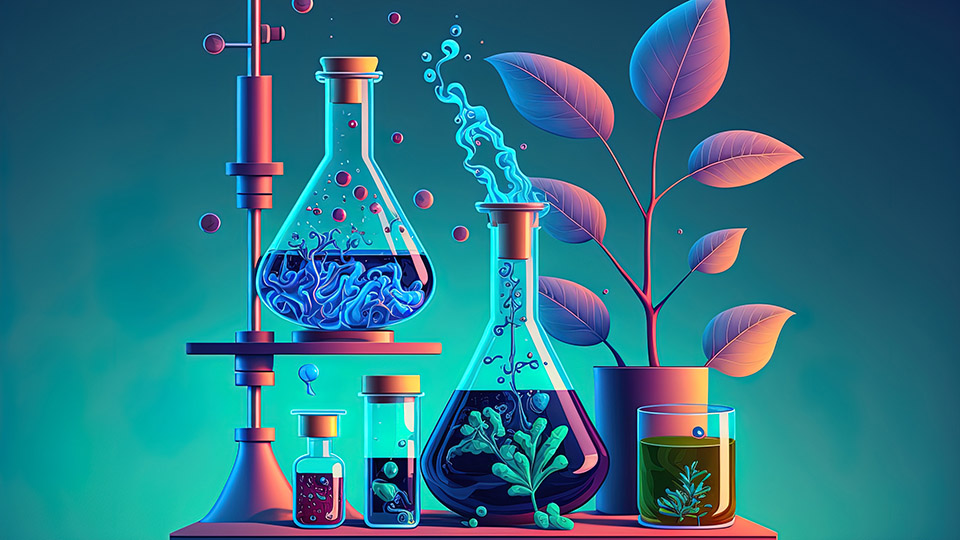Digital Engineering and Artificial Intelligence
We focus on digital twins for sustainable materials development and manufacture.
Digital twins are virtual replicas of physical systems that enable real-time simulation, analysis, and optimisation.
Our research
In sustainable materials development and manufacturing, digital twins offer transformative potential by integrating advanced modelling, data analytics, and AI to enhance process efficiency, reduce waste, and minimise environmental impacts.
By mirroring every stage of a material’s lifecycle – from design and testing to production and end-of-life management – we develop digital twins that provide actionable insights, enabling rapid innovation and informed decision-making.
These facilitate the transition to greener processes by predicting energy usage, identifying inefficiencies, and optimising resource utilisation.
As a cornerstone of Industry 4.0, these are paving the way for a more sustainable, cost-effective, and resilient manufacturing ecosystem, aligning industrial growth with environmental stewardship.
Leading the digital transformation of the metals industry
We are part of the £18 million EPSRC funded Centre for Doctoral Training in Digital Transformation of Metals Industry (DigitalMetal CDT).
The DigitalMetal CDT meets a national, strategic need by training a new generation of technical leaders able to spearhead the digital transformation of the metals industry and its supply chain – increasing agility, productivity and the UK’s international competitiveness.
Our vision is to deliver experts who can rapidly take advantage of the latest discoveries in manufacturing processes through digital twinning to enable defect-free, right-first-time production at reduced costs.
Cleaner steel and aluminium production
We are also part of the £2.7 million UKRI-funded Artificial Intelligence X-ray Imaging for Sustainable Metal Manufacturing for cleaner steel and aluminium production (AIXISuMM) project.
Our vision is that transformative and efficient technologies to manufacture high-grade recycled metal alloys from low-grade scrap sources can be delivered by uncovering the missing science to engineer the solidification microstructure to tolerate higher level of impurities, by leveraging the combined power of multi-modal X-ray imaging and in-line artificial intelligence.
Extensive expertise in digital engineering
The metals industry is a vital component of the UK's manufacturing economy.
It makes a significant contribution to key strategic sectors such as construction, aerospace and space, automotive, energy, defence and medical – directly contributing £20 billion to UK GDP and underpinning over £190 billion manufacturing GDP.
With our extensive expertise in digital engineering and computational modelling, we have established strong industry partnerships supported by Innovate UK through Knowledge Transfer Partnerships (KTPs).
Our modelling capabilities extend to diverse applications, including thin films in photovoltaic devices, materials for nuclear fission power generation, biomaterials and biological systems.
These efforts guide the development of advanced materials for energy and healthcare, driving innovation and delivering impactful solutions across these critical sectors.
Areas of research
Our activities encompass a broad spectrum of applications, including, but not limited to:
- Atomistic Modelling of materials
- Molecular Dynamics
- Finite element modelling
- Multiscale materials modelling
- Biological modelling
- Bayesian statistics
- Machine learning
- Artificial Intelligence
